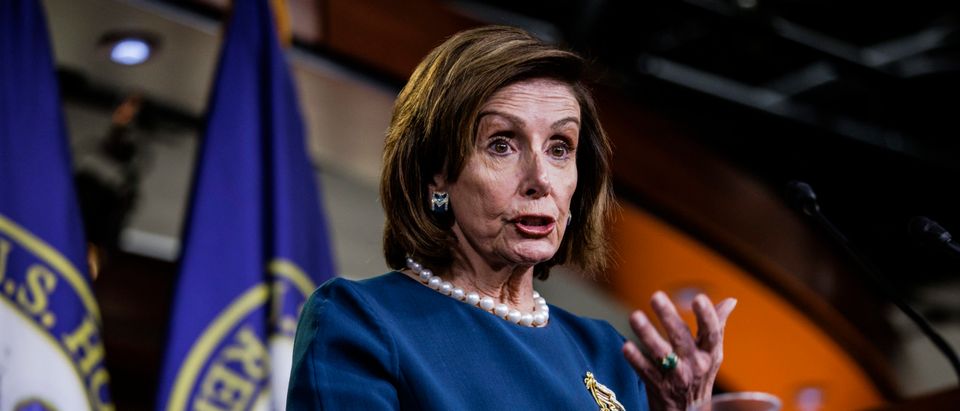After weeks of frantic scrambling to decide what would actually end up in the “Build Back Better” (BBB) bill, D.C. is relatively quiet this week. That’s because everyone is sitting around twiddling their thumbs and waiting for the Congressional Budget Office (CBO) to “score” the legislation, a key demand of the “moderates.” But it’s all an utter farce, one that showcases just how insistent Congress is on making budget scorekeeping meaningless with their legislative gimmicks.
While we don’t yet have an official score, we know a lot about BBB. It won’t pay for itself — in fact, it won’t even come particularly close to doing so — which alone should be enough to deep-six the bill after two straight years of running deficits exceeding $3 trillion.
On top of that, the economy is already running way too hot. Certainly supply chain issues are a major cause of the more than 6 percent inflation that Americans are currently experiencing, but it’s absurd to suggest that throwing trillions more at the economy will do anything but exacerbate the problem.
So what exactly are these “responsible moderates” waiting for? Permission, in the form of a CBO score more doctored than a kid’s fake report card.
The dog and pony show goes a bit like this: First, Congress passes laws restricting how the CBO can “score” legislation. Then, Congress crafts legislation with deceptive gimmicks and tricks (that the CBO has previously been prevented from accounting for) that artificially deflate the cost of the bill. Then, Congress waits for the CBO to provide the half-baked score that it has boxed the CBO into. Finally, it touts the basically meaningless score as proof of its fiscal responsibility, as it continues to shovel trillions of taxpayer dollars into the furnace.
Seem bleak? It is. I’ve talked about the proposed change to the State and Local Tax (SALT) deduction in these pages before, but what Democrats are pulling there should be the subject of public outrage. It’s almost literally a shell game, but one performed at the highest levels of government.
In order to include a massive tax cut for the wealthiest Americans, Democrats have resorted to gaming budget windows. Currently the SALT deduction is set at $10,000. Democrats would raise that cap to $72,500 for tax years 2021-2025. Then, for 2026-2030, they would restore the $10,000 cap that’s currently in place.
A reasonable person would assume that proposal would reduce tax revenue for 2021-2025 as wealthy taxpayers take advantage of the higher SALT cap, then leave revenue collections unchanged for 2026-2030 as the SALT cap returns to the status quo. But that’s not how CBO will score it.
Because the SALT cap is set to expire in 2025 under current law, restoring the SALT cap for 2026-2030 will be scored as a huge increase in revenue, likely enough to account for raising the cap from 2021-2025. Never mind that Democrats aiming to pass this change never intend to allow that SALT cap to come back into effect. In fact, they could pass the exact same change five years from now, and every five years following, and never have the CBO score the tax cut as a revenue decrease! Meanwhile, CBO is prohibited from accounting for Democrats’ intentions of another extension of the higher SALT cap in five years in their projections.
Clearly, this makes an absolute mockery of the CBO’s role to provide taxpayers and legislators with reasonable and accurate information about the budget impact of their legislative changes. Rather than keeping fiscally irresponsible legislators in check, the inmates are running the prison — telling the CBO what it can and cannot do and crafting legislation around those restrictions.
CBO reform is far from the sexiest issue, but it’s nonsense like this that makes it so necessary. It’s just one reason why the National Taxpayers Union Foundation runs the Taxpayer’s Budget Office, an effort to provide taxpayers with more accurate information and encourage CBO reform. But until taxpayers start demanding that their legislators reform budget scoring, they should continue to expect scores that legislation was written to receive.
Andrew Wilford is a policy analyst at the National Taxpayers Union Foundation, a nonprofit dedicated to tax policy research and education at all levels of government.


